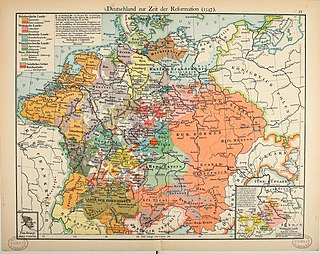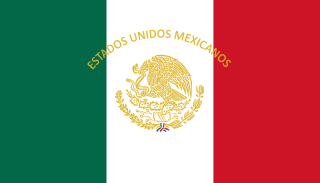Interim may refer to:
Interim may refer to:

The prime minister of Israel is the head of government and chief executive of the State of Israel.

A court order is an official proclamation by a judge that defines the legal relationships between the parties to a hearing, a trial, an appeal or other court proceedings. Such ruling requires or authorizes the carrying out of certain steps by one or more parties to a case. A court order must be signed by a judge; some jurisdictions may also require it to be notarized. A court order governs each case throughout its entirety. If an individual violates the court order, the judge may hold that person in contempt.

A military junta is a system of government led by a committee of military leaders. The term junta means "meeting" or "committee" and originated in the national and local junta organized by the Spanish resistance to Napoleon's invasion of Spain in 1808. The term is now used to refer to an authoritarian form of government characterized by oligarchic military dictatorship, as distinguished from other categories of authoritarian rule, specifically strongman ; machine ; and bossism.
A caretaker government, also known as a caretaker regime, is a temporary ad hoc government that performs some governmental duties and functions in a country until a regular government is elected or formed. Depending on specific practice, it consists of either randomly selected members of parliament or outgoing members until their dismissal.

Defrocking, unfrocking, degradation, or laicization of clergy is the removal of their rights to exercise the functions of the ordained ministry. It may be grounded on criminal convictions, disciplinary problems, or disagreements over doctrine or dogma, but may also be done at their request for personal reasons, such as running for civil office, taking over a family business, declining health or old age, desire to marry against the rules for clergy in a particular church, or an unresolved dispute. The form of the procedure varies according to the Christian denomination concerned.

A decree is a legal proclamation, usually issued by a head of state, judge, royal figure, or other relevant authorities, according to certain procedures. These procedures are usually defined by the constitution, Legislative laws, or customary laws of a government.
In common law legal systems, original jurisdiction of a court is the power to hear a case for the first time, as opposed to appellate jurisdiction, when a higher court has the power to review a lower court's decision.
A provisional government, also called an interim government, an emergency government, a transitional government or provisional leadership, is a temporary government formed to manage a period of transition, often following state collapse, revolution, civil war, or some combination thereof.

The Religious Freedom Restoration Act of 1993, Pub. L. No. 103-141, 107 Stat. 1488, codified at 42 U.S.C. § 2000bb through 42 U.S.C. § 2000bb-4, is a 1993 United States federal law that "ensures that interests in religious freedom are protected." The bill was introduced by Congressman Chuck Schumer (D–NY) on March 11, 1993. A companion bill was introduced in the Senate by Ted Kennedy (D-MA) the same day. A unanimous U.S. House and a nearly unanimous U.S. Senate—three senators voted against passage—passed the bill, and President Bill Clinton signed it into law.

The 1932 Prussian coup d'état or Preußenschlag took place on 20 July 1932, when Reich President Paul von Hindenburg, at the request of Franz von Papen, then Reich Chancellor of Germany, replaced the legal government of the Free State of Prussia with von Papen as Reich Commissioner. A second decree the same day transferred executive power in Prussia to the Reich Minister of the Armed Forces Kurt von Schleicher and restricted fundamental rights.

The Beneš decrees were a series of laws drafted by the Czechoslovak government-in-exile in the absence of the Czechoslovak parliament during the German occupation of Czechoslovakia in World War II. They were issued by President Edvard Beneš from 21 July 1940 to 27 October 1945 and retroactively ratified by the Interim National Assembly of Czechoslovakia on 6 March 1946.

The Religious Land Use and Institutionalized Persons Act (RLUIPA), Pub. L. 106–274 (text)(PDF), codified as 42 U.S.C. § 2000cc et seq., is a United States federal law that protects individuals, houses of worship, and other religious institutions from discrimination in zoning and landmarking laws. RLUIPA was enacted by the United States Congress in 2000 to correct the problems of the Religious Freedom Restoration Act (RFRA) of 1993. The act was passed in both the House of Representatives and the Senate by unanimous consent in voice votes, meaning that no objection was raised to its passage, so no written vote was taken. The S. 2869 legislation was enacted into law by the 42nd President of the United States Bill Clinton on September 22, 2000.

The Augsburg Interim was an imperial decree ordered on 15 May 1548 at the 1548 Diet of Augsburg by Charles V, Holy Roman Emperor, who had just defeated the forces of the Protestant Schmalkaldic League in the Schmalkaldic War of 1546/47. Although it ordered Protestants to readopt traditional Catholic beliefs and practices, including the seven Sacraments, it allowed for Protestant clergymen the right to marry and for the laity to receive communion in both kinds. It is considered the first significant step in the process leading to the political and religious legitimization of Protestantism as a valid alternative Christian creed to Roman Catholicism finally realized in the 1552 Peace of Passau and the 1555 Peace of Augsburg. The Interim became Imperial law on 30 June 1548. The Pope advised all bishops to abide by the concessions made to the Protestants in the Interim in August 1549.
Interim management is the temporary provision of management resources and skills. Interim management can be seen as the short-term assignment of a proven heavyweight interim executive manager to manage a period of transition, crisis or change within an organization. In this situation, a permanent role may be unnecessary or impossible to find on short notice. Additionally, there may be nobody internally who is suitable for, or available to take up, the position in question.

The Provisional All-Russian Government, informally known as the Directory, the Ufa Directory, or the Omsk Directory, was a short-lived government of the Russian State during the Russian Civil War, formed on 23 September 1918 at the State Conference in Ufa as a result of a forced and extremely unstable compromise of various anti-Communist forces in eastern Russia. It was dissolved two months later after the coup, which had brought Admiral Alexander Kolchak to power in Communist-free areas of eastern Russia. It was meant to be a continuation of the original Russian Provisional Government that was overthrown during the October Revolution in 1917.

The Council of the People's Deputies was the provisional government of Germany during the first part of the German Revolution, from 10 November 1918 to 13 February 1919. Formed initially by three members each from Germany's two main socialist parties, it shaped the transition from the Empire to the Weimar Republic.
Judicial review is a part of UK constitutional law that enables people to challenge the exercise of power, usually by a public body. A person who contends that an exercise of power is unlawful may apply to the Administrative Court for a decision. If the court finds the decision unlawful it may have it set aside (quashed) and possibly award damages. A court may impose an injunction upon the public body.

The president of Mexico, officially the president of the United Mexican States, is the head of state and head of government of Mexico. Under the Constitution of Mexico, the president heads the executive branch of the federal government and is the commander in chief of the Mexican Armed Forces. The office, which was first established by the federal Constitution of 1824, is currently held by Claudia Sheinbaum, who was sworn-in on October 1, 2024. The office of the president is considered to be revolutionary, in the sense that the powers of office are derived from the Revolutionary Constitution of 1917. Another legacy of the Mexican Revolution is the Constitution's ban on re-election. Mexican presidents are limited to a single six-year term, called a sexenio. No one who has held the post, even on a caretaker basis, is allowed to run or serve again. The constitution and the office of the president closely follow the presidential system of government.
Provisional liquidation is a process which exists as part of the corporate insolvency laws of a number of common law jurisdictions whereby after the lodging of a petition for the winding-up of a company by the court, but before the court hears and determines the petition, the court may appoint a liquidator on a "provisional" basis. Unlike a conventional liquidator, a provisional liquidator does not assess claims against the company or try to distribute the company's assets to creditors, as the power to realise the assets comes after the court orders a liquidation.

Executive Order 13769 was signed by U.S. President Donald Trump on January 27, 2017, and quickly became the subject of legal challenges in the federal courts of the United States. The order sought to restrict travel from seven Muslim majority countries: Iran, Iraq, Libya, Somalia, Sudan, Syria, and Yemen. The plaintiffs challenging the order argued that it contravened the United States Constitution, federal statutes, or both. On March 16, 2017, Executive Order 13769 was superseded by Executive Order 13780, which took legal objections into account and removed Iraq from affected countries. Then on September 24, 2017, Executive Order 13780 was superseded by Presidential Proclamation 9645 which is aimed at more permanently establishing travel restrictions on those countries except Sudan, while adding North Korea and Venezuela which had not previously been included.